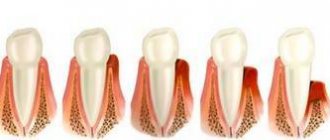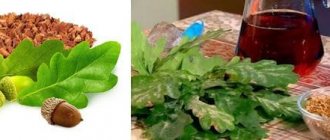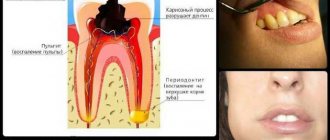Cloves for toothache. How to quickly get rid of toothache
1. Garlic
In addition to protecting against vampires, garlic is a true medicinal miracle, being an effective antiseptic with powerful antiviral, antifungal and antibacterial properties. It has been used for medicinal purposes for many thousands of years. What gives it its power is called allicin, which is released when garlic is crushed.
Finely chop one clove of garlic, then crush the pieces with a knife and leave for 10 minutes to activate the allicin. Apply a small amount of garlic paste to the sore spot in the mouth. Leave on for a few minutes and rinse with warm salt water, which will help clear out the infection and kill bacteria.
This will also help defeat the infection from the inside, since you probably have swelling or inflammation in the sore spot. Also try to add as much garlic to your diet as possible. You can even eat it yourself by crushing it first and allowing the allicin to activate. Remember that, unlike antibacterial drugs, bacteria do not develop resistance to garlic, so you can eat it constantly, and then eat parsley to remove the unpleasant odor.
2. Clove oil
Cloves have anti-inflammatory, antibacterial, antioxidant and anesthetic properties that can help relieve toothache and fight infection. This is the main oil that is used to get rid of dental problems if it is not possible to go to the dentist right now.
It is so useful in the fight against dental problems because of one component included in its composition. We are talking about eugenol, a natural anesthetic. It fights all types of toothache. Clove oil can also be found in many dental products. Take half a liter of water, add a few drops of clove oil and rinse your mouth with the solution, you can also apply clove oil to a cotton pad and very carefully treat the sore tooth and the area around it. The pain will go away very quickly.
Treating tooth pain with cloves
Cloves have long been used in folk medicine for pain relief and as an antiseptic.
Dry and fresh clove buds effectively relieve toothache. Chinese doctors in 200 BC. It was known that cloves do not completely cure toothache, but significantly reduce pain. A decoction of the plant effectively freshens breath. Dentists in the 19th century used clove oil as a means to relieve pain and reduce pain before and after tooth extraction procedures.
Currently, the spice is used as an effective folk remedy, acting as a local anesthetic.
How to numb a tooth with cloves?
Sometimes a tooth can become so painful that you cannot work at your workplace. If you have a toothache, you should contact your dentist as soon as possible so that a specialist can make an accurate diagnosis and prescribe treatment. But if you cannot quickly find a free doctor, cloves will help relieve pain. This spice is used in cooking, preparations and even herbal medicine.
Ground cloves are a folk pain reliever used in the treatment of toothache.
Powder, oil or whole cloves are used for pain relief. The effectiveness of the product does not depend on the form; rather, it is a matter of individual preference. Mostly ground powder is used, since the spice is always available in the house in this form.
The spice in powder form is sold in any store; whole buds should be looked for on the shelves of grocery stores or in places where health food products are sold. Whole buds are placed behind the cheek in the area of the diseased tooth and held until they become soft.
You can chew them to speed up the softening process. The saliva mixes with the natural oils of the spice and numbs the diseased tissues near the tooth.
Dried clove buds are rich in essential oil, which is a natural antiseptic.
Attention! Cloves for toothache will give maximum effect if you keep the spice for about half an hour. If the pain is very severe, the process is repeated.
Clove oil for toothache
To produce oil from the spice plant, its buds are used. They contain eugenol, bactericidal and analgesic substances, which make the spice a natural anesthetic. Treating toothache with clove oil is a more convenient way, but finding this remedy is not easy.
You can buy it at a pharmacy, you just need to ask the pharmacist. You need to be careful when using the oil as it is concentrated. In order to numb a tooth, a small amount of this product is enough. You can use clove oil only on a sore spot, avoiding contact with the gums and tongue.
Cloves have a specific taste that not everyone will like. The oil can become an irritant to surrounding tissue. The analgesic effect occurs within 3 minutes after applying the product. Clove oil can only be used externally. At the end of the procedure, you should rinse your mouth thoroughly.
If taken in large quantities, it may become toxic.
Attention! Pregnant women are not recommended to use clove oil.
Clove oil is a strong pain reliever and natural anesthetic.
Reviews about dental treatment with cloves
The common table seasoning cloves have a very good effect on toothache. Just sprinkle the powder on the sore gum, the pain will subside.
Novoseltsev Anatoly Efremovich
One of the most unpleasant misfortunes is toothache, it makes you cringe when you remember it. It is clear that you must first of all look for the cause of the pain and run to the dentist. And so I saved myself with painkillers, rinsed my mouth with maraslavin, you can suck the root of a clove.
Arzamastsev
I want to share one of the ways to use cloves.
In London, I can’t say for the whole of Great Britain, there is a chain of Boots stores where clove oil is sold in the toothpaste department and dentists who recommend using EO, as indicated here in the topic, against toothache and oral infections.
In Germany I have never seen EO cloves sold like this to the general public, like a regular cheap oral care product, and in Moscow I have never seen anything like this, it seems to us that it is not so widely accepted... So here: When using an interdental toothbrush dipped in EM cloves, you can very thoroughly clean all the difficult places under bridges and crowns. In Europe, doctors recommend doing this regularly (along with regular brushing of teeth) with all types of dentures, odor, inflammation, bleeding, etc. takes pictures very well.
Tested for yourself!
Elizabeth
I always have cloves at home; I add them to first courses and meat dishes. I have known about the antiparasitic properties of this spice for a long time; it is also part of the well-known “triad” against parasites. But I had no idea that it could be used to increase blood pressure. And I have exactly this problem now, the pressure drops from the heat.
I just chewed one little thing and immediately felt better! The mouth feels, however, like anesthesia, so I fully believe that it will also help with toothache. By the way, I read about the contraindications of cloves. Indeed, this is hypertension and also pregnancy. But it is highly recommended for hypotensive patients.
Ivanovna
Source: https://ZubNeBoley.ru/lechenie/narodnye-sredstva/gvozdika-ot-zubnoj-boli/
Whole cloves for toothache. Recipes
- A wonderful recipe for heart health is mulled wine, which is prepared using fragrant cloves. There are many recipes for mulled wine, but cloves and cinnamon are most often used. Usually mulled wine is boiled, but it is more effective to infuse cloves without cooking for several weeks, since heat treatment evaporates and destroys its vitamins and aromatic substances. It is better to take 0.5 liters of high-quality red wine (not powdered), add 5 clove buds to the bottle, and add a little cinnamon if desired. Seal tightly with a stopper and leave in a dark place for 3 weeks. Take 1 teaspoon with tea 1-3 times a day.
- For problems with the oral cavity, toothache, inflammation of the gums, stomatitis, and bad breath, it is useful to chew the buds of the clove tree. The same actions will prevent the onset of a sore throat.
- To stimulate digestion, 15 minutes before meals, carefully chew 1-2 buds of cloves with 1 teaspoon of honey. However, this is contraindicated for stomach and duodenal ulcers, as well as high blood pressure.
- For hypotension, you can also chew several clove buds, the effect will be no less than that of caffeine.
- Clove oil is effective in treating pustules and boils. Apply 1 drop of concentrated essential oil to the boil. For problem skin, take baths with clove essential oil.
- Clove oil is widely used for arthritis and arthrosis. It helps relieve pain and inflammation. To do this, massage the sore joint with diluted clove essential oil (15 drops of clove essential oil per 1 tablespoon of massage oil).
- There are traditional medicine tips for preparing decoctions from the buds of the clove tree. However, the medicinal value of such drugs will be small, since heat treatment destroys the substances that make up the buds.
Clove essential oil for toothache. Valuable healing properties of cloves:
1. Reduces toothache, treats gums and periodontal disease. Toothache remedy: soak a piece of cotton wool in clove oil and apply it to the painful tooth. You can also prepare medicine from clove buds: to do this, boil 5 g of cloves in sesame oil. The oil should cool slightly, after which it can be applied to the aching tooth, 3 drops twice a day.
2. Improves blood circulation, warms the body during colds.
3. Helps with severe nasal congestion, treats diseases of the respiratory tract (cough) and throat. Inhale: to do this, add a few drops of clove oil to hot water and breathe in the steam. For dry cough, chewing clove buds is helpful. To prepare a gargle, dilute ¼ tsp in warm water. sea salt and add 1 tsp. ground cloves.
4. Improves appetite and digestion of food, stimulates the production of digestive juices, and is used in the treatment of colitis, intestinal colic, diarrhea, flatulence, and rectal diseases. Just add a small amount of cloves to your food, but do not forget about the contraindications!
5. Helps eliminate nausea or vomiting. To prepare a remedy for nausea, place several dry clove buds in boiling water. Place the swollen inflorescences in your mouth and hold for a few minutes.
6. Anthelmintic effect: 3 times a day before meals (and in the morning on an empty stomach), eat 1/3 tsp. ground cloves with water.
7. Has an antiseptic and bactericidal effect (including against hepatitis and tuberculosis), promotes rapid healing of wounds, relieves pain and relieves muscle spasms.
8. Refreshes the oral cavity.
9. Repels insects.
10. Calms the nervous system, restores strength after physical or mental stress.
11. Reduces skin inflammation. Prepare a clove-based tonic lotion: add 1 clove petiole to ½ cup of brewed black or green tea. Wipe the inflamed areas of your face with this lotion.
12. Fights cellulite. Clove essential oil is used in massage oil mixtures. A wrap, scrub or massage with clove oil improves skin tone and reduces the appearance of cellulite. Ground cloves are an important component of weight loss preparations.
Cautions and contraindications
Do not forget that aroma oil is a concentrated product, so even a small amount of the substance has a strong effect on the body. Traditionally, it is not recommended to use essential oil for toothache for pregnant women, breastfeeding women, as well as people suffering from bronchial asthma and allergy sufferers - the rich aroma, especially in a confined space, can provoke an attack of suffocation. Pay attention to contraindications, as esters can cause exacerbation of chronic diseases.
Consultation with a doctor is always better than self-medication; if possible, discuss your problem by phone or other means before visiting the dentist in order to choose the most suitable option for pain relief.
Oil for toothache. Relieving pain from tooth root abscess
Self-medication for a tooth abscess is only possible when its size is small, the body temperature is normal and there is no opportunity to visit the dentist. It must be remembered that if the disease is not treated, severe complications may develop, for example, sepsis, which can lead to death.
For abscess, you can use cloves for toothache, which is a potent remedy and acts as an antibacterial and analgesic medicine. A cotton ball is moistened with a few drops of clove oil and applied to the affected area for 20-30 minutes. After removing the compress, the mouth should be rinsed with clean water. If you don’t have clove oil on hand, the spice can save you from toothache. You should take 2-3 clove sticks and chew them in your mouth. Treatment is carried out several times a day.
Baking soda and salt also help with this disease. Dilute a teaspoon of baking soda and salt in a glass of warm water. The resulting solution is used to rinse the mouth 6 times a day, and a fresh product is prepared for each procedure. The pain may disappear after the first rinse.
Sage infusion relieves pain well and reduces swelling. For this, 2 tbsp. l. dried herb should be poured with 0.5 liters of boiling water, cover with a lid and allow to cool completely. Then the broth is filtered and divided into two portions. You should rinse your mouth twice a day at intervals of 12 hours.
A lotion using camphor oil draws out pus well.
Tea tree oil
Tea tree oil has a disinfectant and anti-inflammatory effect. A mixture of 1-2 drops with 1 glass of warm water is used for toothache as a mouth rinse. You can treat the tooth and gums with a swab soaked in essential oil. The maximum effect is achieved when using a mixture of essential oils of tea tree, lavender, myrrh and chamomile.
Source: depositphotos.com
Antiseptic for toothache. Folk remedies to relieve pain
For periodontal disease, it is useful to massage the gums with regular sauerkraut. To do this, simply eat the cabbage, chewing it thoroughly and slowly. Cabbage is good not only for your gums, but also for your overall health. In addition, rinsing with a decoction of thyme helps with periodontal disease.
There is a very accessible folk recipe for pain in the gums. Peel and boil the potatoes in their skins, lean over the pan, cover with a sheet or towel and breathe in the steam for a few minutes. You can also rinse your mouth with the resulting potato decoction, but without swallowing it.
Another recipe: apply a small piece of propolis to the sore gum so that it covers the sore tooth and gum. After a few minutes the pain will subside.
If you often have bad breath, clean your tongue with table salt and a toothbrush.
Relieving toothache using novocaine
Take 200 g of novocaine 10%, 1 teaspoon of salt, 1 egg white. Whisk all the ingredients and rinse your mouth with the resulting mixture for several minutes. This remedy is very effective, especially for pain in teeth with a crown.
Calamus for toothache
Take half a pack of calamus root, pour it into a jar, pour in 500 g of moonshine and leave to infuse in a dark place for 12 days. At the same time, take 10 g of propolis and pour 500 g of moonshine over it. Leave to infuse for 12 days as well. Strain both resulting mixtures, and then mix 1 teaspoon of propolis tincture and 2 tablespoons of calamus tincture. Store the mixture in a small container.
When your tooth hurts, take 1 teaspoon of tincture into your mouth and do not spit it out for 10 minutes. Then spit it out. If the pain doesn't go away the first time, try again. Calamus helps soothe the gums, and propolis seals the tooth in a unique way.
If the tooth under the crown hurts
Folk remedies help in a variety of situations. So, for example, if you have a toothache under the crown, then take 1 teaspoon of salt, a pinch of ground black pepper, 3 drops of table vinegar. Mix all the ingredients in a tablespoon and hold it over low heat. The boiling composition must be held over the fire for 1 minute, and then allowed to cool. Make a plate from the cooled mass and apply it to the sore gum and tooth. At the same time, strong salivation should begin.
Mullein for toothache
Prepare mullein tincture in advance. To do this, you need to purchase vodka and plant seeds. Mix the ingredients in a ratio of 1:5 (1 part vodka to 5 parts seeds). Place the mixture in a dark place for 20 days.
Application: dilute 20 g of tincture in a glass of warm water and rinse your teeth with it for several minutes.
Propolis - a remedy for sore teeth
Propolis is a unique product made by bees, containing about 100 useful substances. A natural antiseptic destroys germs and effectively helps to quickly get rid of toothache.
Propolis can be used in its natural form or as part of an alcohol tincture. The easiest way to use propolis is to chew it for a few minutes and spit it out. In this case, you can feel the anesthetic effect. The norm of propolis per day is 1-3 g. It is useful only in its soft form, so if you store the product in the refrigerator, then let it warm up and only then start using it. Propolis should absolutely not be swallowed, as well as when rinsing.
You can prepare alcohol tinctures based on propolis and use them if your teeth hurt. Take an alcohol tincture of propolis 30%, moisten a small piece of cotton wool with it and apply it to the sore tooth. You will soon feel better.
If you want to prepare an infusion, then take 40 g of propolis, grind it, add 100 g of 70% alcohol and infuse the mixture for 7-10 days, stirring occasionally. After this, strain the infusion through cheesecloth.
Available folk remedies
Take advantage of simple and affordable ways to get rid of dental pain:
- If you have a toothache, apply iodine to the base of the tooth several times a day. After the procedure, you must wait until the solution dries, as burns may occur.
- Place a magnet on the cheek on the side where the tooth hurts and hold it for 30 minutes.
- Chew Oregano flowers slowly and soon the pain will subside.
- Use a well-known spice - cloves. Take a few cloves, chop them, and apply the resulting paste to the sore tooth.
- Rinsing the mouth with sage, chamomile, calendula, St. John's wort, oak bark.
- Rinse your mouth with a special herbal infusion. To prepare it, take 4 parts sage, 3 parts celandine, 4 parts oak bark. Pour boiling water over this mixture and leave for 1 hour. Then the collection must be boiled for 3 minutes, cooled and strained. You should rinse your mouth with the infusion 5-6 times a day.
- Rinse your mouth with calendula infusion. To prepare it, steam 1 tablespoon of calendula with a glass of boiling water. As soon as the infusion has cooled, start rinsing.
- Garlic and onions are natural medicines. Soak a cotton swab with garlic or onion juice and apply to the tooth.
Other universal ways to relieve toothache
To quickly relieve pain, grind a clove of garlic with two pinches of salt . The resulting slurry should be used to fill the hollow of the diseased tooth, which is cleaned in advance. When the pain subsides, the mass is washed out of the hollow with salted water.
If the pain syndrome is caused by an exposed nerve, then you can try to kill the nerve yourself. For this purpose, a piece of cotton wool soaked in iodine or medical alcohol . It is important to ensure that iodine or alcohol does not get on the gums. Unpleasant sensations can disappear almost immediately after placing cotton wool.
For periodontal disease, you can use mumiyo . To prepare the solution, take 1 g of mumiyo in a glass of water and then rinse your mouth. To enhance the effect, you should take 0.2 g of mumiyo orally every day.
Thus, there are many ways to get rid of toothache yourself . These can be either medications, for example, Metrogyl Denta, or traditional methods. Almost all of them are quite effective . But in any case, as soon as the opportunity arises, you should consult a dentist who will help eliminate the cause of the toothache.
Rita 09.09.2017 Of the painkillers, it is better to take Nimesulide (Nise), it has virtually no effect on the stomach, even with long-term use.
I'll take note of lidocaine lotions. Cloves are also a good local anesthetic, and with propolis you can temporarily fill the hole that has formed before going to the dentist (I just don’t know if the wax will be removed enough before filling the filling?). Add a comment











